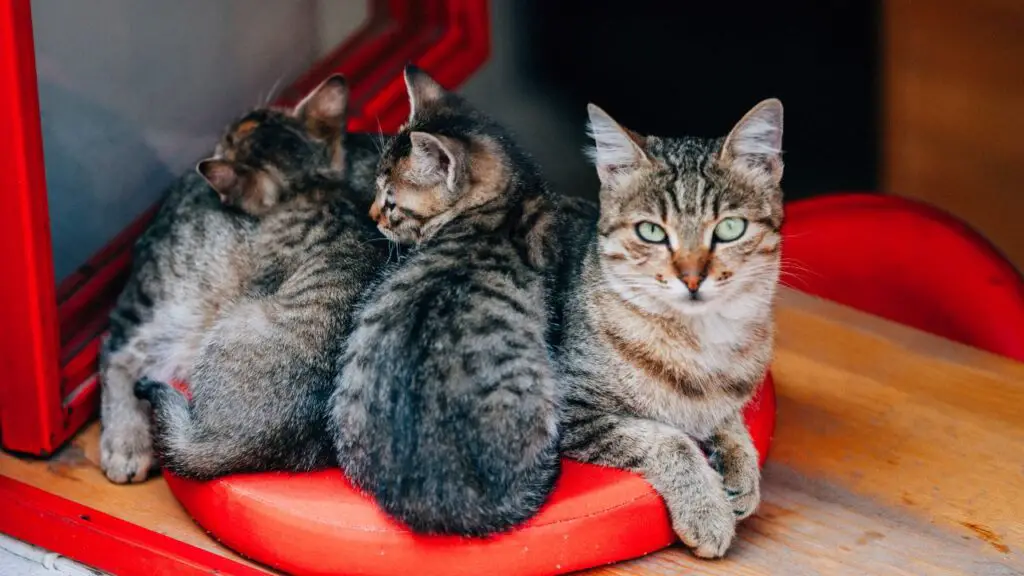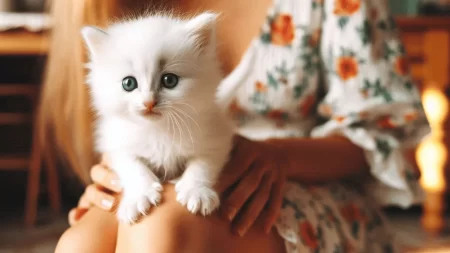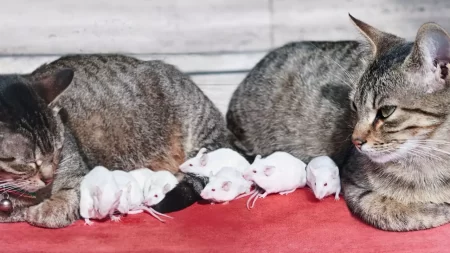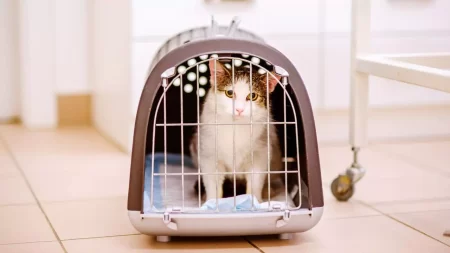Have you ever wondered why cats hide their kittens from humans and other animals? If you are a cat owner or lover, you may have noticed this behavior and wondered what it means.
Cats are known for their maternal instincts and protective nature, but why do they feel the need to hide their babies?
Cats hide their kittens for various reasons, but mainly to protect them from potential threats and to provide them with a comfortable and quiet environment.
Safety
Cats hide their kittens primarily to safeguard them from predators.
Newborn kittens are unable to see or hear, making them entirely dependent on their mother for protection.
Outdoor cats strategically select concealed and hard-to-reach locations to minimize the risk of predators encountering their vulnerable offspring.
Predators like coyotes, hawks, eagles, and even domesticated dogs pose a genuine threat to the kittens, emphasizing the need for a secure and secluded spot.
Indoor cats may also choose to hide their kittens if they perceive their surroundings as lacking sufficient security.
Typically, they opt for hiding spots far from noise, light, and activity, such as closets, under beds, or behind sofas.
Additionally, if they sense any attempts to approach or touch the kittens, they might relocate them.
However, moving the kittens induces stress for both the mother and the babies, so it is advisable to avoid disturbing them unless immediate danger is present.
Survival
Cats hide their kittens to guarantee their survival and health. If a mother cat lacks sufficient milk or resources, she prioritizes the survival of the most promising kittens.
She might relocate or abandon some of them, which may appear harsh.
However, this behavior naturally increases the chances of at least a few offspring surviving.
It is crucial to monitor the well-being of the hidden or separated kittens, focusing on their health.
Some signs that indicate that a kitten is healthy or unhealthy are:
- Weight: A healthy kitten should gain about 10 grams per day. A kitten that is losing weight or not gaining enough may be malnourished or sick.
- Activity level: A healthy kitten should be active and playful when awake. A kitten that is lethargic or weak may be dehydrated or infected.
- Appearance: A healthy kitten should have clear eyes, nose, and ears. A kitten that has discharge, swelling, or bleeding may have an injury or an illness.
If you notice any signs of distress or illness in the kittens, you should contact a veterinarian as soon as possible.
Secretiveness
A third reason why cats hide their kittens is to maintain their privacy and territory.
Cats are generally independent and secretive animals that like to have control over their own space.
When they have kittens, they may become even more territorial and defensive of their nesting area.
They may not want anyone or anything to interfere with their mothering duties or disturb their peace.
If you have a cat that has kittens in your home, you should respect her space and boundaries as much as possible.
Here are some tips on how to do so:
- Avoid touching the kittens too much: The mother cat may not like it if you handle her babies too often or too roughly. She may think that you are trying to harm them or take them away from her. Let her decide when she wants to introduce them to you or others.
- Provide food and water nearby: The mother cat needs to stay hydrated and nourished while nursing her kittens. You can help her by placing food and water bowls near her hiding place so she doesn’t have to go far to eat or drink.
- Let her move her kittens if she wants to: Sometimes, the mother cat may decide to change her hiding place for various reasons. She may feel more comfortable in another spot or she may want to avoid potential threats. Unless she moves them to a dangerous place, such as outside or near a heat source, you should let her do so without interfering.
Conclusion
In conclusion, cats hide their kittens for different reasons that are related to their instincts and behaviors as mothers and as cats.
They want to protect their kittens from predators, ensure their survival and health, and maintain their privacy and territory.
As cat owners or lovers, we should respect their space and boundaries and provide them with food and water nearby.
We should also check on their health and well-being and intervene only if necessary.
By doing so, we can help them raise their kittens happily and peacefully.







